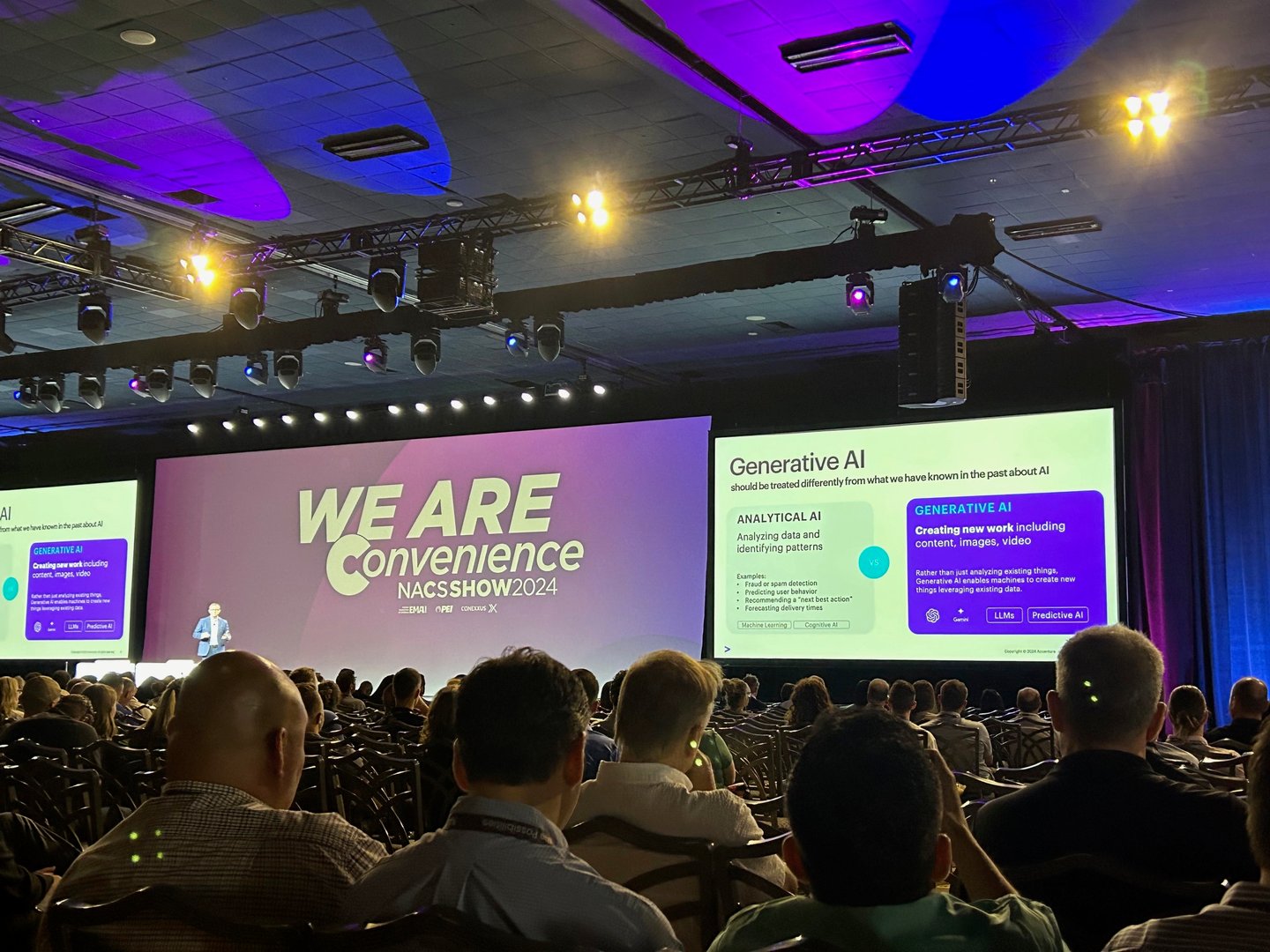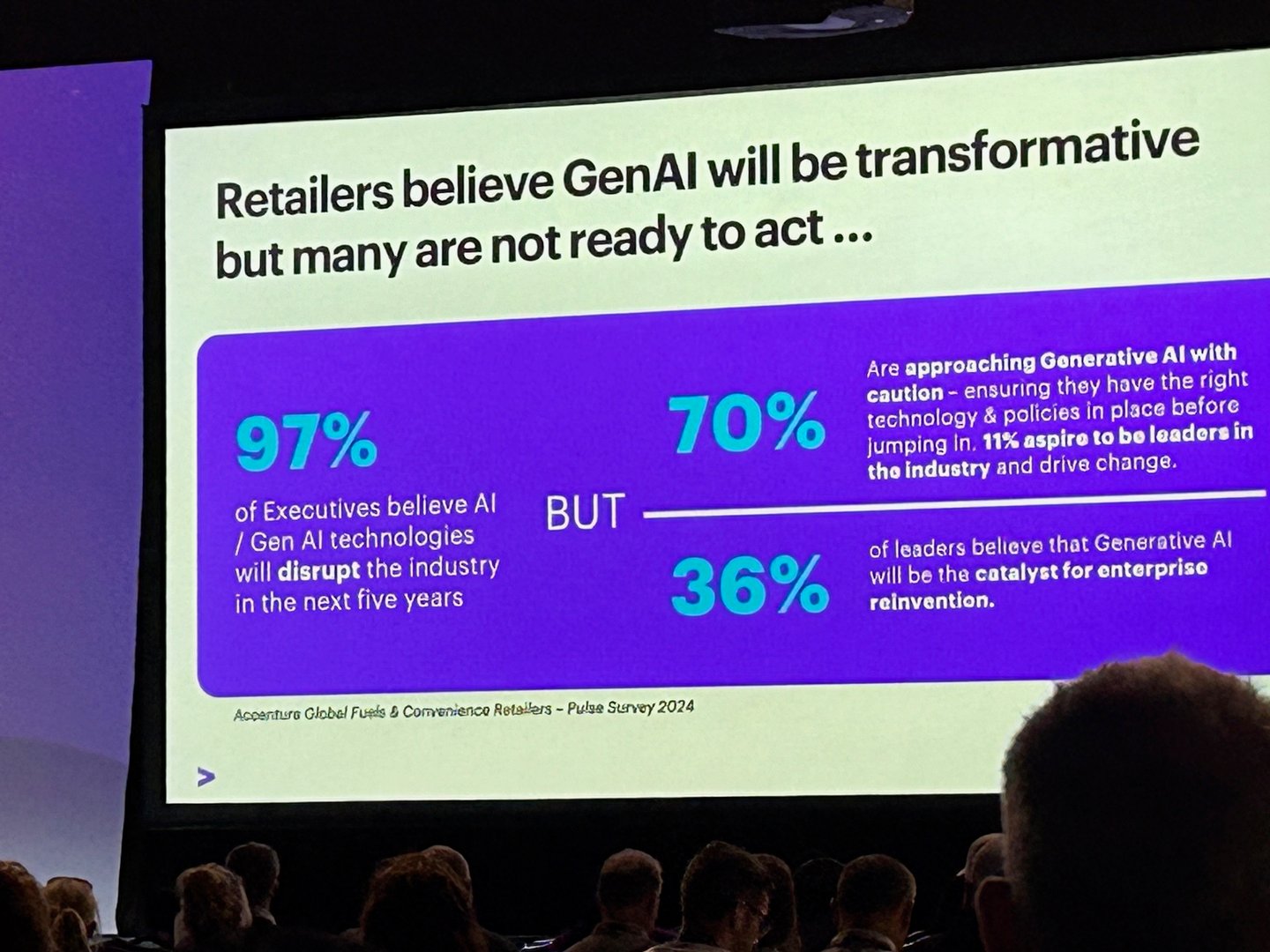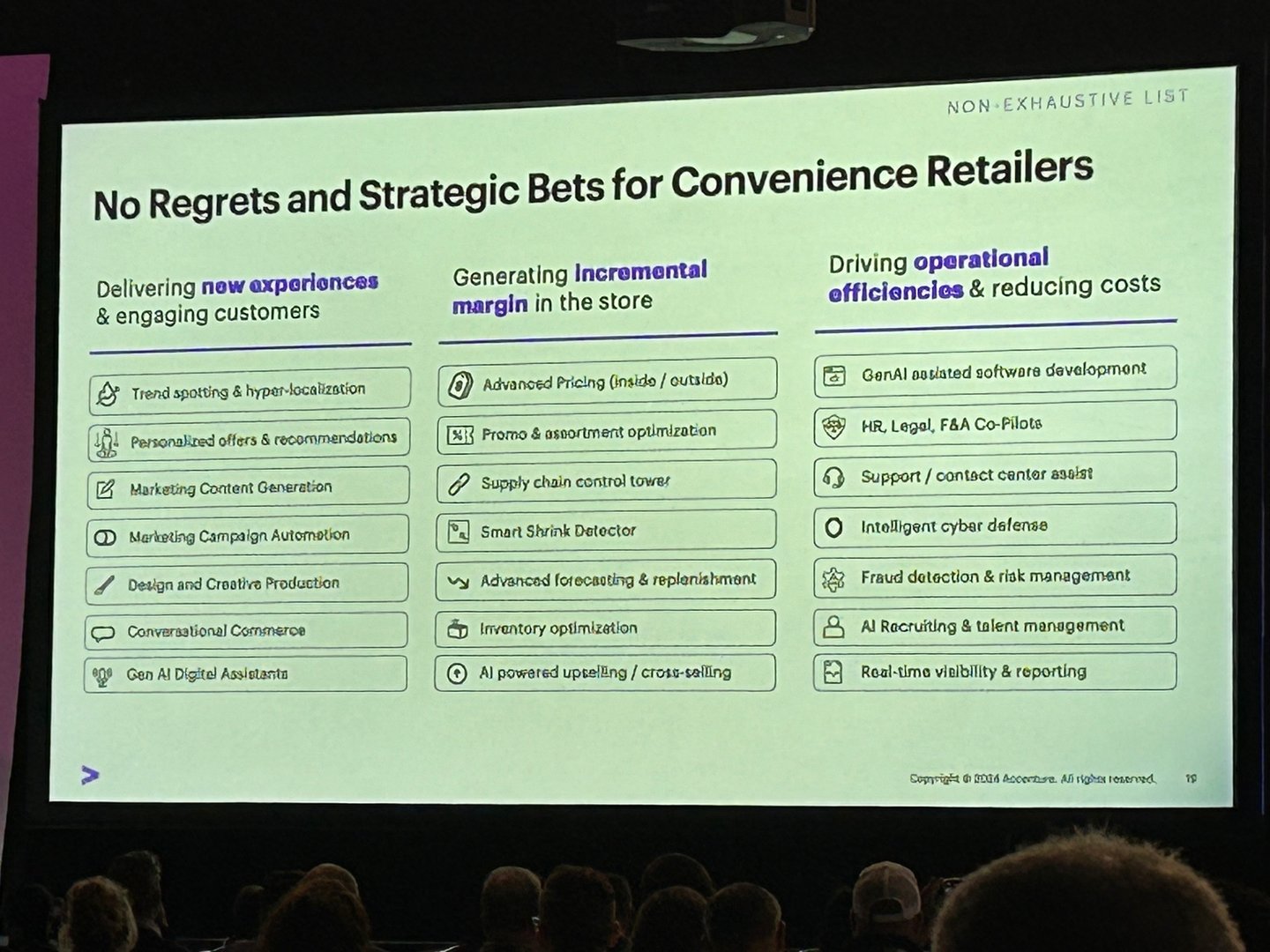Four ways artificial intelligence (AI) is ready to revolutionize the convenience and gas channel
Artificial Intelligence (AI) is rapidly reshaping industries around the world, including the convenience and gas channel. During an October 9th session at NACS 2024 in Las Vegas—Leveraging AI to enhance your business—Brian Gray, managing director, Accenture, highlighted how AI and generative AI are transforming day-to-day operations, customer interactions and business models.
His overarching advice is that AI can and should be used as a starting point—there’s no reason to reinvent the wheel and smart leaders know when to ask AI for help to streamline everything from creative processes to strategic planning: “Things that may have taken days can now take minutes or hours.”
Gray spoke about the wider potential then outlined several retail use cases to illustrate how AI is poised to revolutionize the channel.
“We've seen it happen before,” he said. “A shiny new tech toy hits the market, and pundits declare it revolutionary. But sometimes, one thing really does transform everything. AI is that once-in-a-generation technology, and it’s already reshaping every industry—including fuel and convenience.”
Generative AI and other advanced technologies are set to accelerate faster than previous tech revolutions like the internet and smartphones. This evolution is transforming not only operations, but also how businesses interact with customers. C&G is now seeing applications of AI that promise to save time, reduce costs and even generate new revenue streams.
1. Streamlining operations
A major benefit AI brings to the table is the ability to streamline operations, particularly through better forecasting and supply chain management. “Imagine you're a store manager trying to stock a DIY smoothie bar. What if you could ask AI for a seven-day forecast based on weather, customer traffic, and more?” said Gray, who illustrated how AI can scrape data from various sources and provide precise inventory recommendations, allowing stores to avoid overstocking or stockouts.
AI can also provide personalized suggestions in real-time, taking into account external factors like weather, local events, and even a customer's past purchases. The impact of these AI-driven efficiencies could be significant, particularly in a sector where margins are tight and operational accuracy is crucial.
2. Enhancing the customer experience
One of the most exciting (and a little disconcerting) aspects of AI is its ability to create highly personalized customer experiences. AI tools can analyze vast amounts of data to tailor offers, marketing messages, and even store layouts to individual preferences. “We have an amazing opportunity to reimagine the retail experience in our stores using AI,” emphasized Gray.
For example, AI can recommend personalized promotions based on the customer's vehicle type or purchase history, creating a more engaging experience. This type of hyper-personalization helps businesses tap into otherwise anonymous customers who might not participate in loyalty programs but still visit regularly—Gray spoke about profiling these shoppers based on their vehicle type, its condition and travel patterns.
3. Solving staffing challenges
AI is also making waves in recruitment and employee management. “We’re dealing with high turnover rates,” explained Gray, who provided examples of how AI can now screen applicants more efficiently, matching candidates to roles based on their skills and availability. Through polls and other tools, AI also helps in retaining employees by monitoring engagement and flagging potential issues, allowing managers to intervene before workers become disengaged and leave. For instance, a manager could adjust the schedule of someone who is feeling overwhelmed or has a temporary time crunch issue.
4. Data-driven decision making
Another advantage of AI is its ability to support data-driven decision-making. By integrating AI into daily operations, businesses can not only predict future trends but also react quickly to real-time data. “We're not just looking at reports and dashboards anymore,” Gray noted. “This is about having a conversation with your data.”
AI tools allow business leaders to move beyond static reports and spreadsheets, providing real-time insights into everything from sales trends to customer behaviours. This level of intelligence will enable fuel and convenience stores to make more informed decisions faster, giving them a competitive edge.
- 3 big takeaways
- Technology is accelerating faster than we have ever seen before.
- Those that embrace technology will win in the future and those that don’t will not. Don’t wait.
- We have an amazing opportunity to reimagine the convenience experience in stores using AI.




